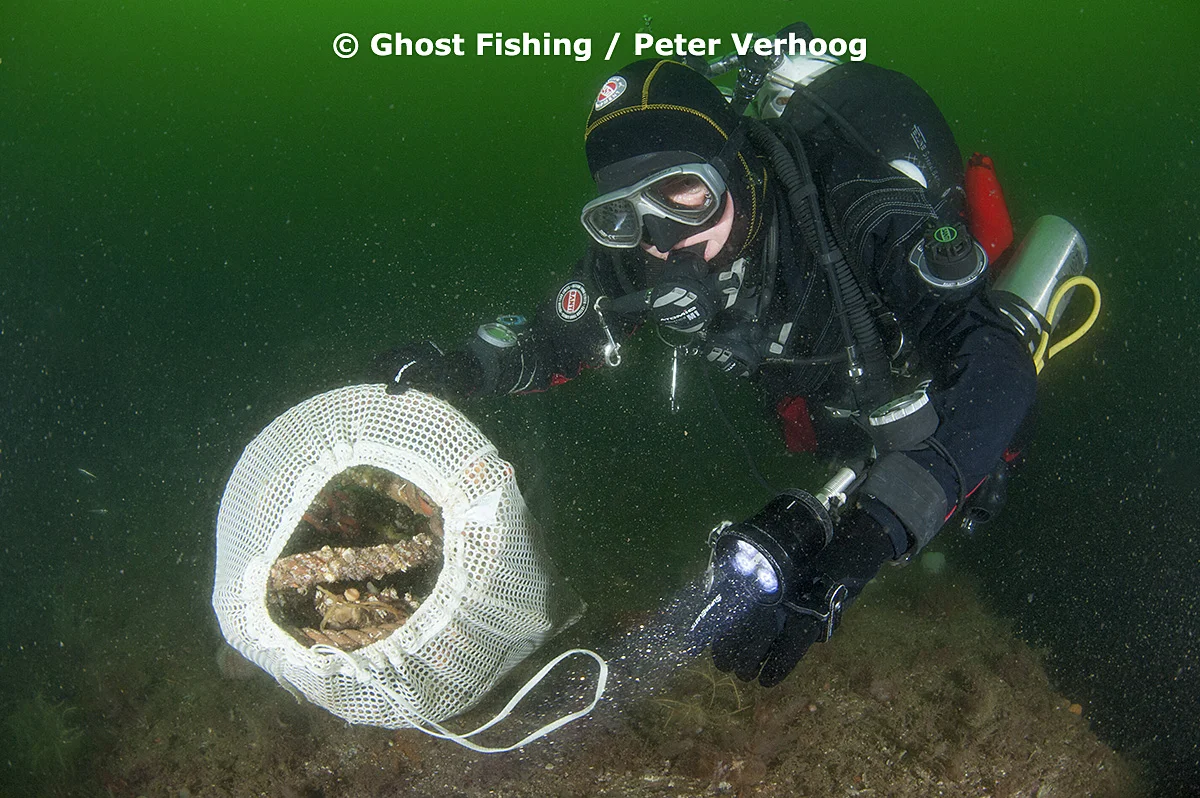Lost Fishing Gear - A Global Challenge
Every year, a staggering amount of fishing gear is abandoned, lost or discarded in our ocean globally. Fishing nets, rope, traps, and other lost gear, trap marine life and deplete harvestable fish stocks while they drift under the surface of the water for decades, perhaps even centuries. These silent and uncontrolled hazards are known as “ghost gear”. Most of the gear lost in North America is due to poor weather, snags on underwater obstructions and by accidentally being run over by other vessel traffic. This is a cost to fishers and coastal communities as well as marine ecosystems.
It is important to note that gear loss by Canadian fishers is nearly always unintentional, and represents a significant economic loss for them. Gear is expensive and fishers depend upon it for their livelihoods. When gear is lost, it is typically lost due to:
Poor weather;
Being accidentally run over by other vessel traffic;
Getting caught on rocks, reefs or other gear where it can be a serious danger to the vessel and crew if not cut loose.
Reducing the Impact - The ESPS Approach
ESPS addresses the complex problem of ghost gear and other marine debris through research, underwater surveys, recovery, recycling (where possible) and education. We work collaboratively with governments, businesses, non-profits, and schools to minimize the impact of marine debris on the west coast of British Columbia. Currently, ESPS is entirely volunteer led and self-funded, so we rely on donations from our generous supporters and grant funding to carry out this work.
We are mapping the locations of lost fishing gear via surveys and models, working safely to recover abandoned gear and collaborating with local communities and industries.
Our Mission
To protect marine life and sensitive ecosystems from the devastating effects of abandoned, lost or discarded fishing gear and marine debris through research, collaboration, gear removal projects and educational initiatives.
research
Bringing together sources of data that help build a picture of where we might find discarded fishing gear. Working out where the biggest problems are being caused and developing models that allow us to predict impact and location. As we build this library of information we will share it with any group to help build a collaborative body of work that helps minimize the problems of lost fishing gear.
Survey
Testing our assumptions and models via dive surveys: once we have predicted the location of gear we survey underwater sites and collect real data. Through this testing we develop recovery methods and discover more about the impact of abandoned gear on marine ecosystems, as well as discover new sites where nets and other debris need to be removed.
Recover
Using commercial diving standards, we perform recovery of lost fishing gear and other marine debris in coastal and near coastal areas. We recover these items where possible and recycle as much of it as we can. Some items are simply too large to be retrieved by our dive team and vessel; in this case, we report the gear/debris location to the Global Ghost Gear Initiative Data Portal.
Educate
Working with schools and participating in community events to help bring awareness to the issue locally and globally, and leveraging our social media channels to educate the public about this critical ocean issue.
Learn more
“The work performed by ESPS is much needed and, until recently, a severely lacking area of research and action along the coast of British Columbia. ”


